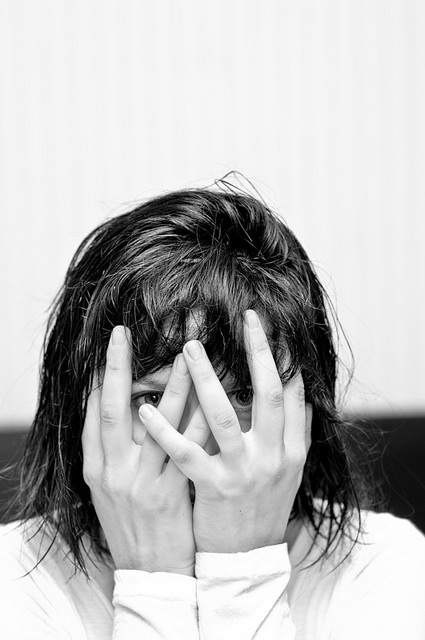
Editor’s Note: This website is not designed to, and should not be construed to, provide medical advice, professional diagnosis, opinion or treatment to you or any other individual, and is not intended as a substitute for medical or professional care and treatment. Always consult a health professional about before trying out new home therapies or changing your diet.
~
A year ago, I went off birth control for the first time in 14 years.
It was a bit hellish.
For something that over ten million women are using, there was surprisingly little information on what to expect when coming off. We all know birth control works, when used consistently, as only five percent of unintended pregnancies are attributed to high-risk women who use some form of contraception.
But there’s not a whole lot of discussion on the rest:
What do we do when we want to get off? Why is there not more discussion and information about something so widely used by us women?
I searched and Googled. I asked all my friends—most of whom were split between never starting it and currently still on some form of it—and no one had any real answers as to what I should expect or watch out for with physical side effects.
I didn’t know if I was going crazy or if it was normal to feel the way I was feeling—which was all over the place.
I was left to my own intuition to decide what the hell was happening to my body.
I decided to write this so that the next woman who Googles “effects of coming off birth control” might find more information than I did. I write to encourage us, as women, to teach our younger sisters and daughters self-respect and esteem, and not to fear sex conversations—to be open and honest instead. We can teach them to think for themselves and make educated decisions about what to do with their bodies. I write to encourage thought.
I want to add, I did little to no research upon starting birth control all those years ago, because I was just desperate to make sure I didn’t end up pregnant again, forced into making a really painful decision about what to do. I was 21, and in the throes of my party life. I just jumped in and started trying different methods.
I was one of those people who tried about six variations of the pill before I found one that didn’t make me bleed out nonstop for weeks. I couldn’t handle taking my pills consistently and on time, so I switched to the Depo shot, again with no research.
I was making these decisions on my own, because I was too embarrassed and immature to talk about it with anyone.
I was too insecure to have adult conversations with partners about using protection. So really, I was too immature to be having sex!
Fast forward 16 years. Just after my 36th birthday, I stopped the Depo shots, which I had been receiving for four years, every three months. Before that, it had been endless variations of “the Pill” since I was 21. Maybe it was the Depo shot that made coming off so hard, or maybe not. I don’t know and can’t be sure, because again, there was little information to be found on the physical side effects of stopping this form of birth control. I found this a little strange.
I was searching for others who were experiencing or had experienced what I was, because I wanted to know how long the madness and discomfort was going to last.
I found vague answers:
“As the piece indicates, there is not currently a lot of understanding of these withdrawal symptoms; a quick search of the medical literature [for depo withdrawal symptoms] doesn’t turn up much on the topic. One woman in the article reported that her physicians “shrugged their shoulders” in response to her complaints, and there is uncertainty as to whether cessation of the drug itself causes the symptoms in some women, or if perhaps the drug had been masking some symptoms that return once the injections are stopped…
“A physician interviewed for the article used one of my least favorite analogies—comparing women’s bodies to a car to be worked on. Dr. Louis Weinstein, head of obstetrics and gynecology at Philadelphia’s Thomas Jefferson University Hospital, said: “It’s like you don’t know why your car won’t start. Most of [the symptoms] have nothing to do with Depo-Provera. There may be a lot of other things going and to blame that on Depo-Provera is just not fair. We don’t know.”
Well thanks, that was helpful. It’s like, “Here’s some medication, and when you want to stop taking it, we will liken your body to figuring out why a car won’t start.” Yikes. I found other vague statements about side effects lasting for six months as the drug leaves the body, but as to what those side effects were—not a whole lot.
When I started Depo, it affected me a bit more intensely than the pills had. I would be really angry for the week following my shot, and then I would mellow out. No real weight gain though, and my skin never broke out. Needless to say, I was happy. When I stopped the shots, it became another story:
Over the next nine months it was like going through puberty all over again, but worse. My cycle came back full force, with painful cramps and heavy bleeding. My moods were all over the place, my breasts would swell up painfully, the weird food cravings came, and I just wanted to punch people in the face for two days. And my skin. Hello, adult acne. It was like all the pimples I never had for the last 14 years all wanted to show up at once. And they were the painful, cystic ones. It sucked. It’s still sucking!
And my sex drive. It was MIA. It would reappear occasionally, but mostly, it was dormant. There I was thinking, “isn’t this supposed to be my peak time for sex drive?” (I’m 36). Yet here I am, too busy battling hormonal teenage bulls*t. I was emotional and felt crazy. I was not a happy camper. I searched more, trying to find information on how long I could expect to feel this way.
After the fact, once I was in the midst of the side effects, I found a chat board here and finally found out I wasn’t alone, and what was in store.
My skin still goes crazy and my cramps still hurt, but I do feel my moods stabilizing a little more. I have found meditation, yoga and herbal supplements immensely helpful. I follow a vegan diet and practice Ayurveda as well, as I feel that adding chemically-loaded foods may just upset the balance I am slowly achieving. With herbal supplements, exercise and rest, I feel I am coming to a place of balance. We are all different in our hormonal levels, but what I found the most helpful was vital/chaste tree berry, rosehip oil and red raspberry leaf. There are extract capsules you can buy, and these herbs aid in hormonal balance—especially progesterone and prolactin. I went and saw a naturopath and followed her suggestions for natural remedies.
I never gave any thought to what would happen later down the road if I wanted to stop taking birth control. At the time, I just didn’t care. I needed a solution. And now I’m paying the price for my lack of research on what I put in my body years ago.
So if you’re thinking about birth control, think it through.
Learn from my poor judgement. There are healthier choices out there.
And please, don’t be afraid to talk about it!
~
Author: Lindsay Carricarte
Image: Global Panorama/Flickr
Editor: Toby Israel
~
 Share on bsky
Share on bsky





Read 1 comment and reply